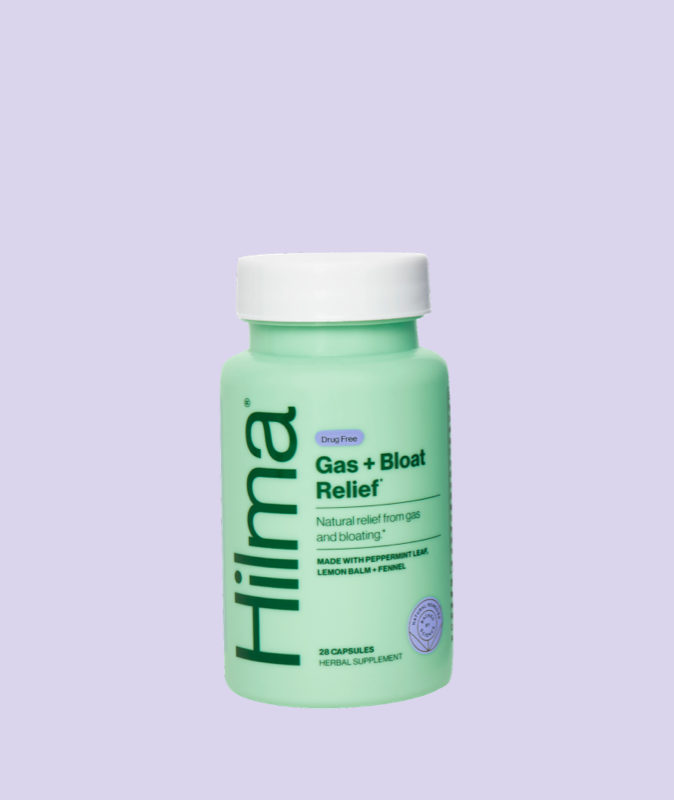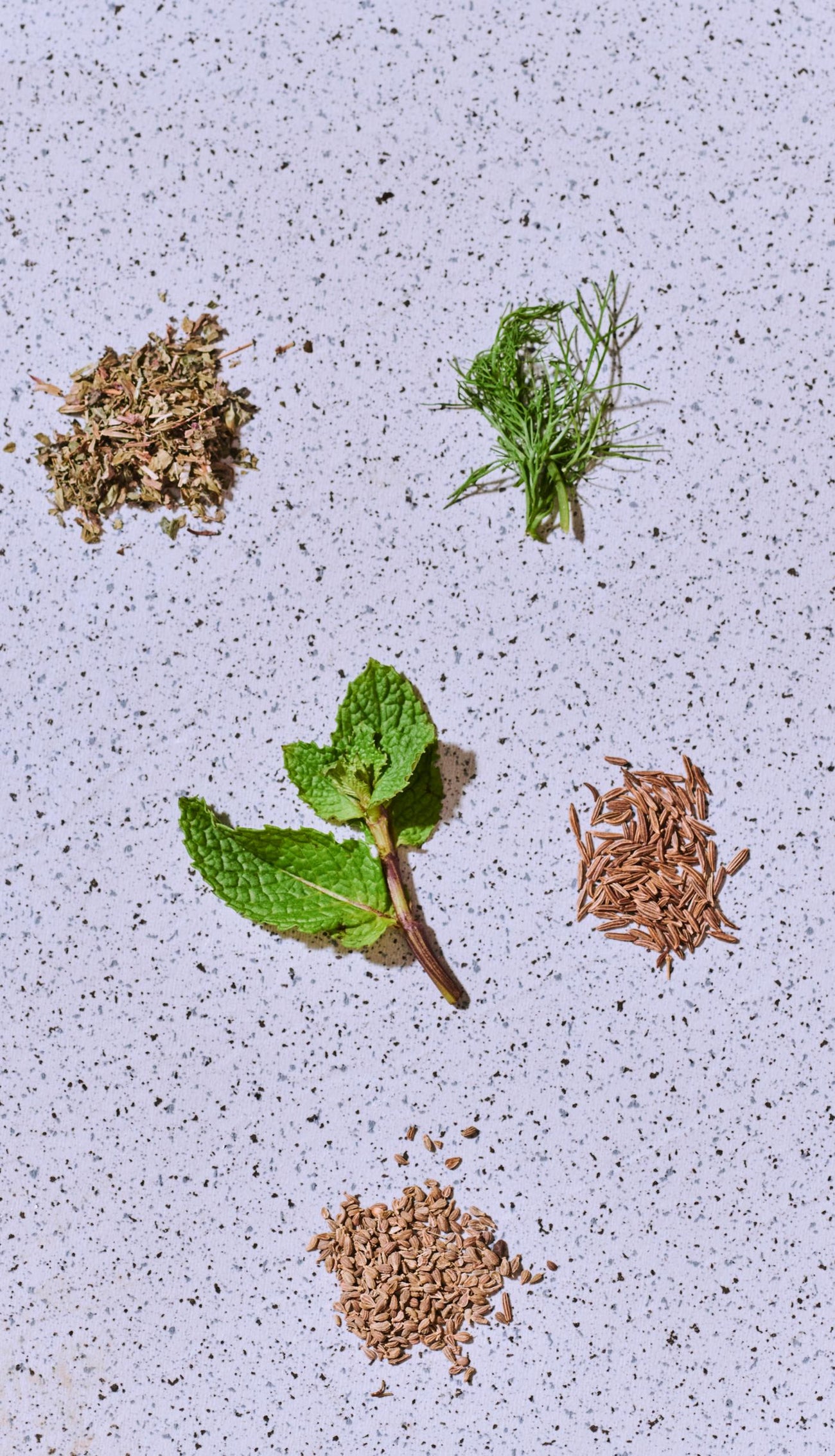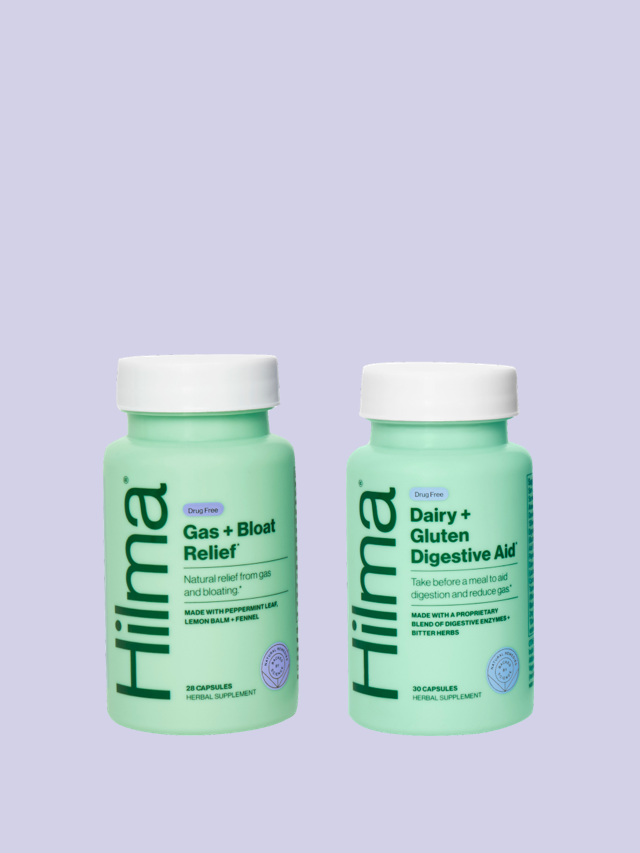
Have you ever had a burp that gave off an intense rotten egg smell? If so, then you've experienced what's commonly known as a sulfur burp.
It's not the most pleasant sensation, and foul-smelling burps can be downright embarrassing in social situations. But don't worry, you're not alone, and more importantly, there are plenty of ways to tackle this issue.
Here at Hilma, we’re dedicated to finding natural remedies for common issues. Today, we’re going to help you understand why sulfur burps happen and how to manage them effectively. Our mission is to provide you with high-quality and accessible solutions that are grounded in science.
When it comes to sulfur burps, we've got the information and resources you need to address this issue quickly and naturally. Let’s get started right away so you can put sulfur burps into the past once and for all.
What Are Sulfur Burps?
Sulfur burps, as the name suggests, are burps that carry an unpleasant smell that’s reminiscent of rotten eggs. This odor is the result of hydrogen sulfide gas, which can be naturally produced as a byproduct in your digestive tract when your body breaks down certain amino acids, which are the building blocks of proteins.
Unfortunately, these burps result in more than mere excess belching and bad breath. In many cases, sulfur burps are often accompanied by other uncomfortable digestive issues, like bloating, flatulence, abdominal pain, indigestion, heartburn, nausea, and vomiting.
Causes of Sulfur Burps
The first step to getting rid of sulfur burps is to understand what is causing them in the first place.
Here is a closer look at some of the most common underlying causes of sulfur burps:
Bacterial Infection
Certain types of bacteria, such as Helicobacter pylori (H. pylori) or Giardia, can damage the tissues in the small intestine and cause an overgrowth in the intestinal tract. An overgrowth of harmful bacteria can result in a variety of digestive problems, including the excess production of hydrogen sulfide gas and subsequent sulfur burps.
Digestive Conditions
Several digestive medical conditions can cause sulfur burps, including:
Gastroesophageal Reflux Disease (GERD)
Gastroesophageal Reflux Disease (GERD) is a chronic condition where stomach acid frequently flows back into the esophagus, causing heartburn and other uncomfortable symptoms. This acid reflux can lead to hydrogen sulfide gas further up in the digestive tract, releasing in the esophagus and resulting in sulfur burps.
Allergies and Food Intolerances
Allergies and food intolerances can cause your body to struggle with digesting certain foods. This can lead to excess gas production in the digestive system, including hydrogen sulfide. As a result, you may experience sulfur burps. Common culprits include cruciferous vegetables, garlic, and eggs.
Irritable Bowel Syndrome (IBS)
Irritable Bowel Syndrome (IBS) is a common disorder that affects the large intestine, leading to symptoms such as cramping, abdominal pain, bloating, gas, and diarrhea or constipation. This disruption in your digestive system can lead to an overproduction of gas, including hydrogen sulfide, which can result in sulfur burps.
Crohn’s Disease
Crohn's disease is a type of inflammatory bowel disease that can affect any part of the gastrointestinal tract from mouth to anus. It can lead to a variety of digestive problems, including an overproduction of gas. This excess gas can include hydrogen sulfide, leading to the occurrence of sulfur burps.
Preventing Sulfur Burps
Preventing sulfur burps often involves making some lifestyle changes. Here are some steps you can take to help reduce the likelihood of experiencing sulfur burps:
Modifying Your Diet
One of the key ways to prevent sulfur burps is to modify your diet. This can involve cutting down on sulfur-rich foods (cruciferous vegetables, allium vegetables, eggs, meat and seafood, and some dairy products) and avoiding overeating. Overeating can put a strain on your digestive system, leading to an overproduction of gas, including hydrogen sulfide.
Regular Exercise
Regular physical activity can aid digestion and reduce excess gas. Exercise helps to stimulate the muscles of the gastrointestinal tract, which helps to move food and gas through the system more efficiently.
Proper Hydration
Staying well-hydrated is essential for healthy digestion. Water aids in the breakdown of food in your stomach and helps prevent constipation, which can contribute to excess gas and sulfur burps.
Stress Management
High stress can disrupt your digestive system and potentially lead to sulfur burps. Meditation, yoga, and deep breathing can help manage stress levels and promote better digestive health.
Quit Smoking and Limit Alcohol
Both smoking and excessive alcohol consumption can interfere with your digestive system and lead to sulfur burps. More specifically, the inflammation and damage of chronic smoking and alcohol disrupt the body's balance of hydrogen sulfide production. Quitting smoking and limiting alcohol can significantly improve your digestive health as well as your overall health.
Mindful Eating
Eating slowly and mindfully can also help to prevent sulfur burps. Taking the time to properly chew your food aids in the digestive process. It can also help reduce the amount of air swallowed during eating, which can contribute to gas and burps.
Getting Rid of Sulfur Burps
If you’re currently going through sulfur burps, don’t worry because there are plenty of simple solutions that can help you get rid of them.
Read on to learn all of your options for sulfur burp relief:
Home Remedies
When it comes to dealing with sulfur burps, nature has provided us with a wealth of remedies that can help. Here are some natural ingredients that can aid in digestion and help reduce the occurrence of sulfur burps:
-
Turmeric: A golden gem in the spice world, turmeric offers anti-inflammatory properties that are instrumental in supporting healthy digestion. It's a natural way to keep your gut happy and your digestive system running smoothly.
-
Ginger: Ginger, a common ingredient in many kitchens, is a natural remedy that has been used for centuries to soothe digestive discomforts, such as gas and bloating. It's a go-to natural solution for those pesky digestive issues.
-
Caraway: Caraway seeds, with their distinct flavor, have a long history of soothing digestive issues. They're particularly effective in managing excess gas that can lead to unpleasant sulfur burps.
-
Fennel: Fennel is a digestive superstar known for its ability to aid digestion and relieve gas. It's a natural way to combat the discomfort associated with digestive issues.
-
Anise: Anise is a powerful herb with antispasmodic properties that can help relax your digestive tract. This reduction in tension can lead to less gas and fewer sulfur burps.
- Herbal Teas: Green tea, peppermint tea, and chamomile tea are more than just comforting beverages. They can also aid in digestion and soothe the digestive tract, reducing the likelihood of sulfur burps.
Digestive Supplements
In addition to home remedies, certain digestive supplements can also support your digestive health and help prevent sulfur burps from ever starting.
Here are some you might consider:
Probiotics
Probiotics are beneficial bacteria that help support a healthy gut. They can assist in breaking down food, potentially reducing the production of hydrogen sulfide gas that leads to sulfur burps.
Hilma Daily Pre + Probiotic + Herbs is a high-quality, research-backed probiotic supplement that not only supports your digestive health but also your immune system. It's a natural, accessible solution that combines the power of probiotics with the benefits of herbs to help support a healthy balance in your gut and reduce gas.
Fiber Supplements
Fiber plays a crucial role in your digestive health. It adds bulk to your diet, helping to regulate your digestive system and promote regular bowel movements. A lack of fiber can lead to digestive issues like bloating and gas, which can result in sulfur burps.
Hilma Fiber Gummy is a natural, accessible solution that can help increase your daily fiber intake. Made with high-quality, natural ingredients, these gummies can help regulate your digestive system and minimize the occurrence of sulfur burps.
Digestive Enzymes
Digestive enzymes are proteins that break down food into nutrients your body can easily absorb. A lack of these enzymes can lead to food not being fully digested, which can result in excess gas and sulfur burps.
Hilma Daily Fiber + Digestive Enzymes is a supplement that combines the benefits of fiber with the power of digestive enzymes. This supplement can help your body break down food more effectively, reducing the amount of sulfur produced during digestion and the occurrence of sulfur burps. It's a natural, accessible solution that supports your digestive health.
The Final Word
Sulfur burps can be uncomfortable and embarrassing, but with the right dietary changes and supplements, you can manage and even prevent them. Remember, if your symptoms persist, it's always a good idea to consult a healthcare provider. With a little patience and the right approach, you can say goodbye to those smelly burps and hello to better digestive health.
So why wait? Browse through Hilma’s range of products and find the supplements that can help you deal with sulfur burps effectively. We have everything you need to give your digestion all the support it deserves.
Sources:
Hydrogen Sulfide Signaling in the Gastrointestinal Tract | PMC
Are We Getting Enough Sulfur in Our Diet? | PMC
Helicobacter Pylori | Johns Hopkins Medicine
Giardia Infection (Giardiasis) - Symptoms & Causes | Mayo Clinic
Impact of Commonly Used Drugs on the Composition and Metabolic Function of the Gut Microbiota | PMC
Acid Reflux & GERD: Symptoms, What It Is, Causes, Treatment | Cleveland Clinic
Food Allergy vs. Food Intolerance: What's the Difference? | Mayo Clinic
Irritable Bowel Syndrome (IBS): Symptoms, Causes & Treatment | Cleveland Clinic
Definition & Facts for Crohn’s Disease | NIDDK
Overeating: Causes, Symptoms & How to Stop | Cleveland Clinic
Physical Activity and Intestinal Gas Clearance in Patients with Bloating | NCBI Bookshelf
Water, Hydration and Health | PMC
Stress and the Digestive System | BYU
The Interaction Between Smoking, Alcohol and the Gut Microbiome | NIH



